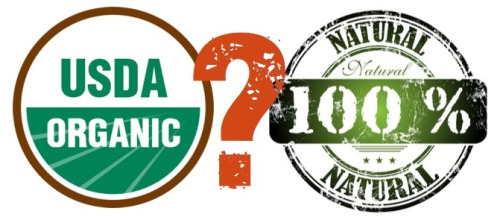There’s been a lot of buzz recently surrounding the meaning of food labels. What does “organic” actually mean? And what does the label “natural” denote?

When it comes to crops, “The… organic seal verifies that irradiation, sewage sludge, synthetic fertilizers, prohibited pesticides, and genetically modified organisms were not used.” When it comes to livestock, “The USDA organic seal verifies that producers met animal health and welfare standards, did not use antibiotics or growth hormones, used 100% organic feed, and provided animals with access to the outdoors.” Finally, when it comes to organic multi-ingredient foods, “the USDA organic seal verifies that the product has 95% or more certified organic content… (and) If the label claims that it was made with specified organic ingredients, you can be sure that those specific ingredients are certified organic.”
It turns out (and is a shock to many) that the label “natural” really doesn’t mean much of anything at all; there are practically no standards behind it, and there is no premarket verification, says Urvashi Rangan, PhD, executive director of the Consumer Reports Food Safety & Sustainability Center. Despite this, “poll after poll shows that people think the natural label means more than it does, and recent polling shows that about one-third of consumers think natural and organic mean the same thing, when they don’t.” Why are labels like this even allowed on packaging, if they’re so misleading?
It comes as no surprise that it can be quite the challenge for consumers to determine who and what to trust when making their selections. In response to this, I invite you to take a closer look at what we are doing at HowGood and download our free app, as we demystify what’s really in your food and empower you to make informed purchasing decisions. Also, take a look for yourself at two like-minded alternative labels to organic, Certified Naturally Grown and Food Alliance, both of which have in-depth certification processes, setting them apart from meaningless marketing terms such as “natural.” The more you know, the better choices you can make.






